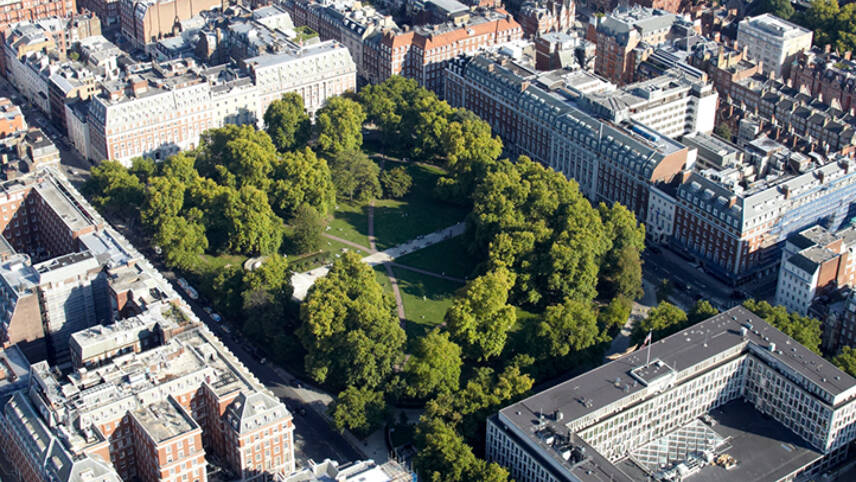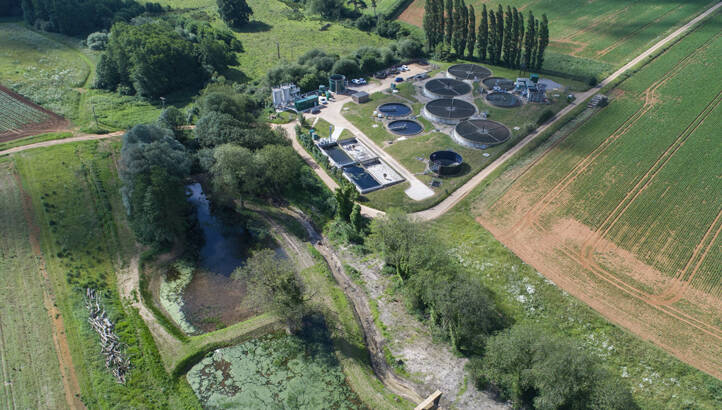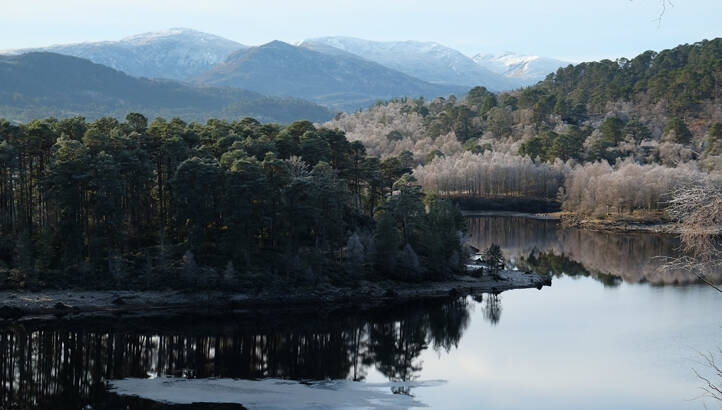Register for free and continue reading
Join our growing army of changemakers and get unlimited access to our premium content

Image: Grosvenor Britain & Ireland
Property developer and investor Grosvenor received approval for the project, which will see the development of the capital’s second-largest urban gardens, late on Tuesday (14 June). It first applied for planning permission last year and completed public consultations on the project in December.
According to the planning documents, Grosvenor is expecting to increase green space at the Square by two acres and deliver a five-fold increase in plant species at the Square, including the net addition of 24 individual trees. All in all, a 15.5% increase in biodiversity benefit is forecast, along with improvements in local air quality.
The updated Square will feature a shaded garden, a central open garden, flowering entryways, waterfall canopies and wetlands. There will also be channels designed to capture rainwater, ready for reuse.
In terms of visitor amenities, Grosvenor is planning timber pergolas at the entrances, new play spaces, toilets, a kiosk and an education centre, with materials covering topics including the Square’s history and the project’s environmental sustainability credentials. The London Wildlife Trust is partnering with the firm to develop educational resources.
Ground is expected to be broken at the Square in early 2024.
Wetland restoration
In related news, Anglian Water has this week announced proposals for what it claims is the UK’s biggest wetland restoration programme to date, covering 26 locations across the East of England.
The firm has pledged at least £50m of investment in the programme. Once restored, the intention is to use the wetlands as natural treatment plants for used water; at each wetland, treated water can be passed through interconnected ponds so it can be exposed to plant species which assist with treatment.
“Although Anglian Water’s existing water recycling processes already remove the majority of these substances in line with tight environmental permits issued by the Environment Agency, the wetlands work to treat the water even further, removing the need for expensive, carbon-intensive infrastructure and the chemical dosing which is conventionally used,” a statement from the firm reads.
Anglian Water’s director of quality and environment Dr Robin Price added: “Chemicals such as phosphates and ammonia come from urbanisation, and domestic products like detergents, as well as from human and animal waste. As our region grows, we need to find more natural ways to remove them from our wastewater, rather than adding more chemicals in our treatment processes or building carbon-hungry infrastructure, which is unsustainable, and would have an impact on customer bills too. The wetlands are therefore a great solution; they not only remove the unwanted chemicals naturally but they create a wildlife-rich environment too.”
Approaches at each site will be informed by Anglian Water’s previous work to restore the River Ingol wetland near Ingoldisthorpe, Norfolk (pictured) – a project which began in 2019 and saw the firm working in partnership with the Norfolk Rivers Trust. This wetland is now able to naturally treat one million litres of water each year.

Image: Anglian Water
Anglian Water has confirmed that the first three new wetlands to be restored under the project will be two in Charsfield, Suffolk, and another in Stagsden, Bedfordshire. Work will begin at these sites in early 2023. The company is still conducting feasibility studies for the other 23 proposed sites. Seven of the proposed sites include chalk streams. The Rivers Trust claims that England hosts 85% of the world’s chalk streams, but that most are significantly degraded after decades of abstraction and with climate change being another key threat.
Earlier this year, Anglian Water and Severn Trent published a new ‘Get River Positive’ plan, designed to shift their operations to models which have a net-positive impact on rivers. It is light on time-bound, numerical commitments, but includes commitments to enhance rivers and create new habitats; support others to restore and conserve rivers; create opportunities for communities to access river nature and to ensure that storm overflows and sewage treatment works do not negatively impact rivers.
The UK’s water industry has been accused several times over the past 12 months of failing to complete its duties in terms of sustainable sewage treatment and storm overflow management, largely due to an amendment implemented by the Government late last summer that loosened rules. The Government launched a consultation on a new Storm Overflows Discharge Reduction Plan in March after the original amendment was slammed by environmental groups, affected communities and MPs from all major parties, including more than 20 rebel Conservatives.
Scottish Highlands
Also this week, BrewDog hosted the first media tour of its 9,300-acre ‘Lost Forest’ project near Aberdeen. The project is set to see the planting of 1.1 million trees and the restoration of peatland as well as woodland, but has not been without its controversies so far. Click here to read an exclusive, in-depth feature on that project penned by edie’s content editor Matt Mace.
Elsewhere in Scotland, FedEx has confirmed a three-year grant funding programme to support Rewilding Europe as it undertakes a 30-year project to restore 200,000 hectares of land in Scotland’s Affric Highlands, west of the Cairngorms.
The project was first launched last September and covers a vast stretch of land between Loch Ness and the west coast. Types of land set to benefit include mountains, glens, forests, rivers, peat bogs and farms, as well as rivers.

Image: Trees for Life / Rewilding Britain
No government funding is being provided for the project; it launched with funding from community, charitable and philanthropic sources of funding only and FedEx is the first corporate to provide grant funding.
FedEx is notably funding Rewilding Europe to develop a carbon credit standard for nature restoration projects within the continent, as well as supporting work on the ground in the Affric Highlands. Business interest in purchasing nature-based carbon credits has increased significantly in the past few years, with many firms seeking credits as a way to meet net-zero targets and to support goals on nature. FedEx is one such company, targeting net-zero by 2040 in its operations; offsetting will need to be used to address emissions from hard-to-abate activities such as aviation.
“By supporting rewilding, we want to make a connection between carbon capture as a concept and what these natural solutions can really look like on the ground,” said FedEx Europe’s chief operating officer David Canavan. “Now is an exciting moment to get behind this form of land use, as projects like this seek to demonstrate not only the environmental benefits of rewilding, but also connect landowners to alternative sources of income that may not have been possible or accessible until now.”
The Taskforce on Scaling Voluntary Carbon Markets estimates that the current market for offsets will need to be at least 15 times bigger in 2030 than it was in 2019 – and to continue growing at an even faster rate through to 2050. At the same time, key concerns about the market as it is at present will need to be addressed, including better standards to ensure offsets deliver the benefits they promise and that projects do not harm social sustainability.


Please login or Register to leave a comment.